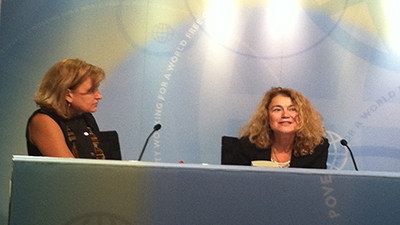The World Bank, one of the largest producers of research about developing countries, recently took important steps toward developing the institution’s first formal ethics policy governing research involving human subjects.
A full-day workshop organized by the research department in January attracted two dozen experts from inside and outside the Bank, including staff from all Regions, the Human Development Network and several ethics experts from universities and think tanks.
The participants agreed to develop a set of pilot research guidelines for the research department, which can then be used as reference for other researchers and peer reviewers of operational projects. They also will produce a training course to address the challenges faced by Bank researchers in development contexts. A study on ethical challenges in Bank research will also begin, which would guide the dialogue on how to find the best mechanisms – such as an institutional review board – to avoid ethical lapses."
“In the history of the World Bank, this workshop will be seen as a major landmark,” said Asli Demirguc-Kunt, the Bank’s director of research. “It addressed two of the most fundamental questions in our research: How can we best protect personal data of survey respondents? How do we research sensitive topics and provide solutions while protecting their privacy?”
Currently, the Bank conducts more than 500 surveys a year in low-income countries, based on interactions with people, such as farmers, teachers, students, health workers and business owners. But it doesn’t yet have standardized, formal ethical guidelines. Work linked to Bank operations goes through a review process about the project itself. Some research projects go through institutional review boards at partnering universities. Others work with national statistical agencies and follow local country procedures. But there is no formal process to guide researchers, and some of these alternatives may not address challenges unique to survey participants in developing countries.
For example, what is the meaning of informed consent with illiterate respondents? What does privacy mean when neighbors and household members listen in on every response to a household survey? How do we make sure any formal structure considers not only the risks of doing research, but also the risks of not doing research, which can lead to ineffective policies that don’t meet the needs of the poor?
To address those challenges with an effective ethical policy, researchers should make sure that the value of research outweigh the risks and that the process produce a social good, said Alex John London, director of the Center for Ethics & Policy at Carnegie Mellon University. The policy should also clearly define the kind of research that will be covered and relevant norms, as well as the review process.

